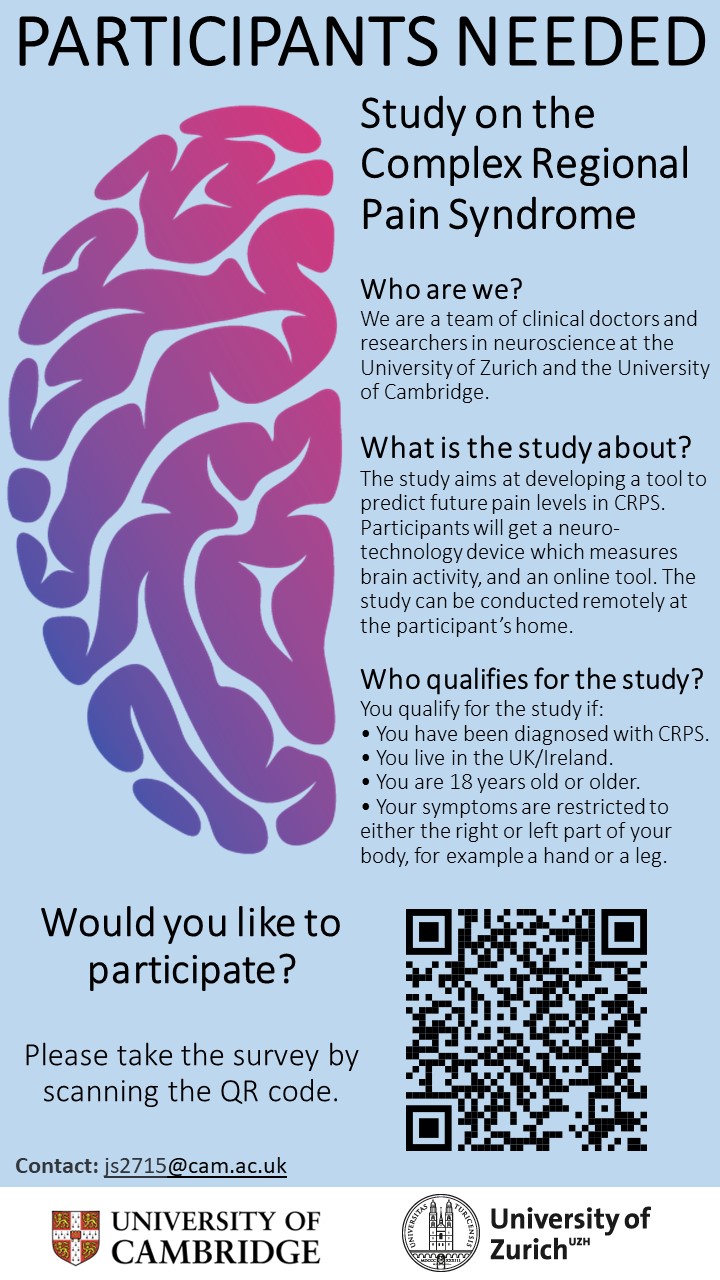We use cookies to improve your experience. By accepting you agree to our cookie policy

Who are we looking for?
Adult patients diagnosed with Complex Regional Pain Syndrome (CRPS) whose symptoms are restricted to either the right or left part of the body, for example a hand or a leg. You must live in the UK/Ireland and 18-years-old or above.
Who is conducting the study?
A team of clinical doctors and researchers in neuroscience at the University of Zurich and the University of Cambridge developing a tool to predict future pain levels in Complex Regional Pain Syndrome.
Interested?
If you would like to take part, use the QR code or email Joaquim on: js2715@cam.ac.uk
Closing date
This study closes in early 2023 or earlier if the required number of participants are found.
More information

Evaluating wellbeing by subjective and objective method is often used as psychological tools to understand health quality and disease. There is limited understanding of the current tools used in the clinic to capture how people truly feel and decide on interventions to improve lfie quality. This study investigates the dynamics of the changes in experiences (types of pain, emotions, attention, fatigue, motivation) including the dimensions of subjective experience, as well as brain activity. The study is aimed for completion by 2023.
Participants will be sent an EEG headband which has electrodes measuring brain activity. They will be asked to complete a pain diary for several weeks using an online tool (website or app). Patients will also receive individual feedback about which variables predict whether their condition will get worse. The study obtained ethical approval at the Unversity of Cambridge.
If you would like to participate or receive more information, please take the following survey (2min): https://qfreeaccountssjc1.az1.qualtrics.com/jfe/form/SV_6Sz569rTCD2X9Uq
Thank you!
We use cookies to improve your experience. By accepting you agree to our cookie policy
 £
£
